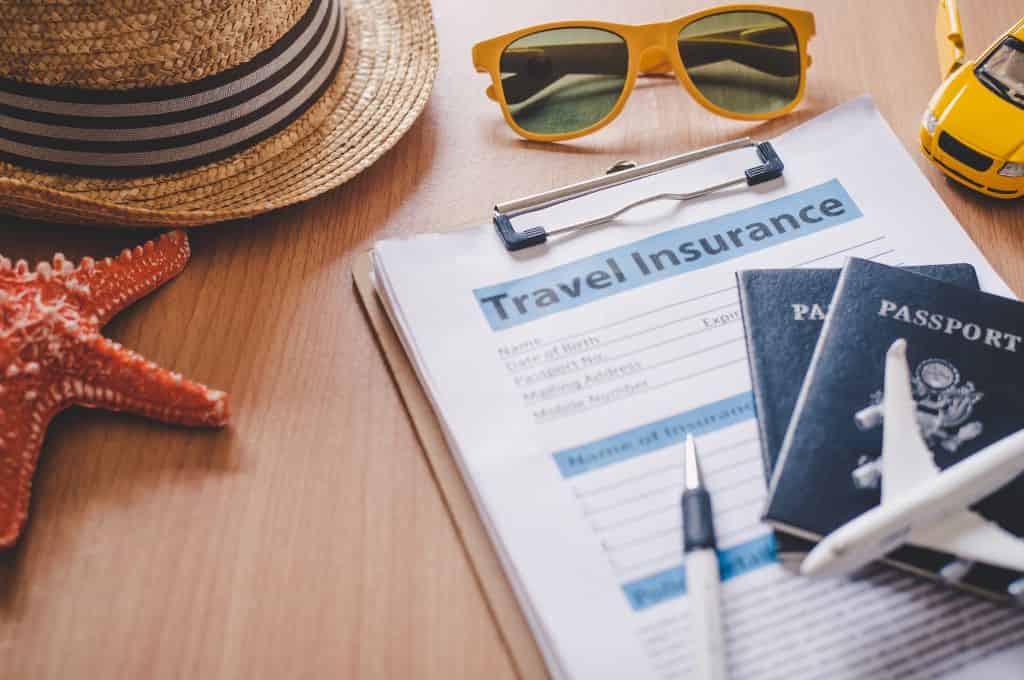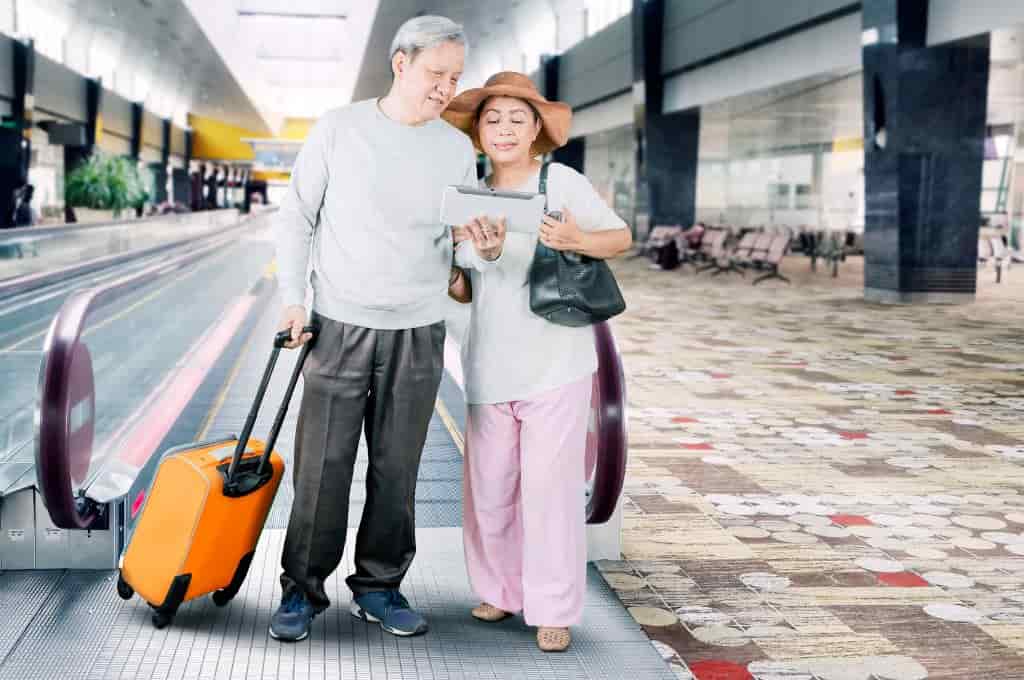Travel Tips For Senior Travelers
- By Seema
- Updated on April 30th, 2025
Traveling is a fantastic way to stay young. Gone are the days when elderly people would sit at home and watch television. Nowadays, they want to travel the world because it makes them feel rejuvenated and energetic. To be honest, it is never too late to cross a few items off your bucket list. Seniors can benefit greatly from travel, and they should visit new places, see old friends, and take family vacations. Meeting people and exploring the world can help older adults become more active physically, mentally, and socially.
However, traveling can be exhausting and challenging for the elderly. As we age, we become more prone to illness and injury. That is why senior travelers must take extra precautions when visiting other countries. Nothing is worse than becoming sick in a foreign land. You lack a support system, are unsure of how to get help, and it could be very expensive. Potential disasters or misfortunes can be avoided to a large extent if we take a few simple steps. So, let’s list some travel tips for senior travelers.
1). Pick a Suitable Destination
Put a lot of thought into deciding on a destination. While it is essential to choose a place that aligns with your interests, there are a few other factors to ponder before settling on a location for elderly travelers.
- The length of the flight should be considered. A 14-15-hour flight can exhaust the seniors even before they arrive at their destination.
- Medical facilities, wheelchair accessibility, climate, and language in the destination country cannot be ignored. You don’t want to spend your vacation in places with extreme temperatures or language barriers.
- The region should be easily negotiable with adequate oxygen levels. Walking on steep, cobblestoned roads or struggling to acclimate to higher altitudes is not recommended for older adults.

2). Choose Travel Times and Routes Carefully
Seniors’ vacations should be planned during the shoulder season to avoid crowds and long lines. Keep the travel schedule for the day so that it does not disrupt your sleeping cycle. Traveling early in the morning or late at night is not recommended for the elderly. Choose the shortest and most direct route, even if it is more expensive. A nonstop flight reduces anxiety and fatigue. It saves the hassle of spending time at airports and the stress of missing a flight. If the flight is very long, try to keep a 24-hour layover between flights so you have enough time to rest in a nearby hotel. If you can afford it, take a business class. If not, try to book priority boarding and extra legroom seats.
3). Get a Pre-trip Medical Check-up
Before leaving for the trip, get a thorough medical examination. This is particularly crucial if the elderly have chronic diseases such as hypertension, coronary heart disease, or diabetes. Consult a doctor to determine whether you are physically capable of handling the trip. Talk to him about the precautions that need to be taken while on vacation. Ensure that you are immunized against any infectious diseases that are common in the areas you are visiting.
Stock enough regular medications to last the duration of your trip. Asking the doctor for a list of the generic names of your medications would be a good idea. Don’t forget to pack drugs for common ailments such as a cold, fever, diarrhea, and aches. Compile a comprehensive list of your medical conditions and prescribed medications to prepare yourself for any emergencies.

4). Invest in a Good Travel Insurance
Travel insurance is a lifesaver for people of all ages, but it is especially crucial for seniors who are at risk of becoming ill or injuring themselves. This is the most significant piece of advice for aging travelers, especially those who intend to travel abroad. Even though senior travel insurance is more expensive, it is always recommended to purchase it. Don’t rely on local medical insurance to pay for overseas medical expenses because it won’t cover those.
A credible travel insurance provider would ensure that you receive the necessary medical attention without being saddled with mountains of medical bills later on. You may never need it (hopefully), but it gives peace of mind and assurance to travel the world. A good travel insurance policy covers not only your medical needs, but also trip interruption, trip cancellation, baggage, and emergency evacuation.
5). Pack Carefully
When packing for the elderly, there are a few things to keep in mind. Keep medications and important documents in the carry-on to ensure they are always available. You don’t want to be stranded without your medications if the checked-in luggage is delayed or lost. Make sure that the bags are light and roll easily. The less you have to carry, the easier it is for you. This does not imply that you forego necessities. One should dress for the weather and wear comfortable footwear and clothing. Masks, chargers, extra glasses, and hand sanitizers are a few items that must not be forgotten. Pack as few valuables and cash as possible because you don’t want to be an easy target for thieves and scammers.

6). Make Copies of Documents
All travel documents should be printed out and kept handy. The copies will speed up assistance at the consulate or travel insurance provider if you misplace their wallets or passports. Keep digital copies of the tickets, hotels, and itineraries at home so that your movements can be tracked if required. If the older adults are visiting family/friends, it is best to provide them with the exact flight details so they can make alternate plans if the flight is delayed or canceled.
7). Prepare Yourself
Research to ensure that you are aware of everything that can be expected on a trip, such as terminal changes, immigration questions, customs regulations, local culture, senior discounts, and so on. Surprises may cause undue stress.
8). Activate International Cellular Plan
Ensure that you have network access while traveling. Check with the network provider to see if it is possible to activate data and calls with the existing plan by including a roaming fee. Otherwise, organize a local SIM card so you can stay in touch around the clock. Relying on hotel/airport WIFI is not recommended for seniors. Keep someone constantly updated on your daily itineraries and movements. The mobile phone should always be on.

9). Travel comfortably
You should travel in comfort, even if you have to stretch a little. Realistically, you will only be able to take very few vacations at this age, so spending some extra money should not be an issue most of the time. Senior travelers would have a more memorable and relaxing vacation if they had better seats, luxurious hotels, taxis, and proper dining.
10). Be Airport Ready
Arrive at the airport with enough time to spare so that you are not rushed or stressed. Check in online if possible and select the best available seats. Those who only have carry-on luggage can bypass the ticket counter and proceed directly to security. If you have a disability or a medical condition, sign up for TSA Precheck (USA). This will allow you to skip standing in long lines and taking off belts, shoes, jackets, and electronics. When walking long distances, use a wheelchair. No point in exerting yourself before a flight.
11). Follow These In-Flight Tips
For a long flight, an aisle seat is preferable because it allows you to move around freely. You don’t have to bother other passengers whenever you need to use the restroom or stretch your legs. If you are traveling with someone, choose seats across the aisle from one another so that you can be close while still having access to the aisle. Call the flight attendants if you require assistance with your luggage. Along with this, senior travelers should wear comfortable clothing, abstain from alcohol, drink plenty of water, carry healthy snacks, stretch frequently, do stretches, and get enough sleep.

12). Book a Hotel that Meets Your Needs
Hotels differ in terms of amenities, location, and layout, so consider your needs before making a reservation. Book reputable and centrally located hotels if you want to feel safe and comfortable. One can easily take breaks between sightseeing if one stays in the city center. If the hotel is on a steep hill or in an unsafe neighborhood, it should be overlooked. Request a ground-floor room in case you have mobility issues. If you are assigned a room on an upper floor, make sure the hotel has an elevator.
13). Have a Relaxed Vacation
Allow at least a day to recover from jet lag. Don’t try to cram too much into your itinerary to see all of the attractions in a limited time. Concentrate on quantity rather than quality, and give time to savor the breathtaking surroundings. Keep in mind that at this age, one is sluggish and easily exhausted. One requires breaks and afternoon naps to rest and recharge. Excessive walking or stair climbing is not recommended. Taxis should be used instead of public transportation as much as possible. Pre-arrange transportation to and from the airport so that you have a vehicle waiting before and after a long flight. Attempt to purchase tickets for all attractions ahead of time to avoid long lines.
14). Take Food Safety Seriously
Food poisoning is a common occurrence when traveling. Aging adults must be especially cautious because they have sensitive stomachs and restricted diets. Keep spicy, oily, and heavy foods to a minimum. Avoid street food, buffets, salads, raw fruits, and seafood. Only consume bottled water.
15). Consider Taking a Guided Tour
Tours and cruises are fantastic options because they provide convenient ways to travel in unfamiliar surroundings. All you have to do is do some research to find a tour that is appropriate for senior citizens, and the rest is taken care of – transportation, lodging, food, and tickets. A cruise is another great alternative because you can explore different places without changing hotels. You can enjoy unlimited dining, entertainment, and shore excursions to make your trip memorable.
